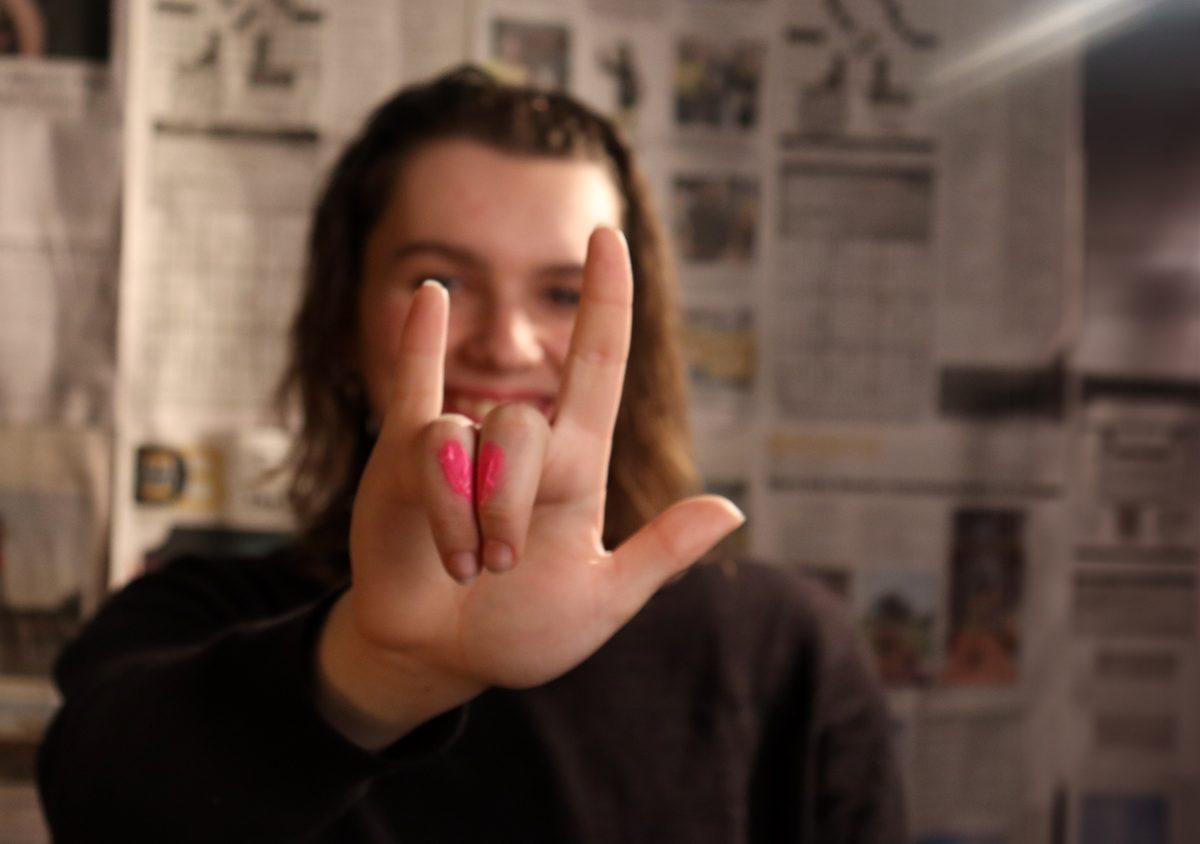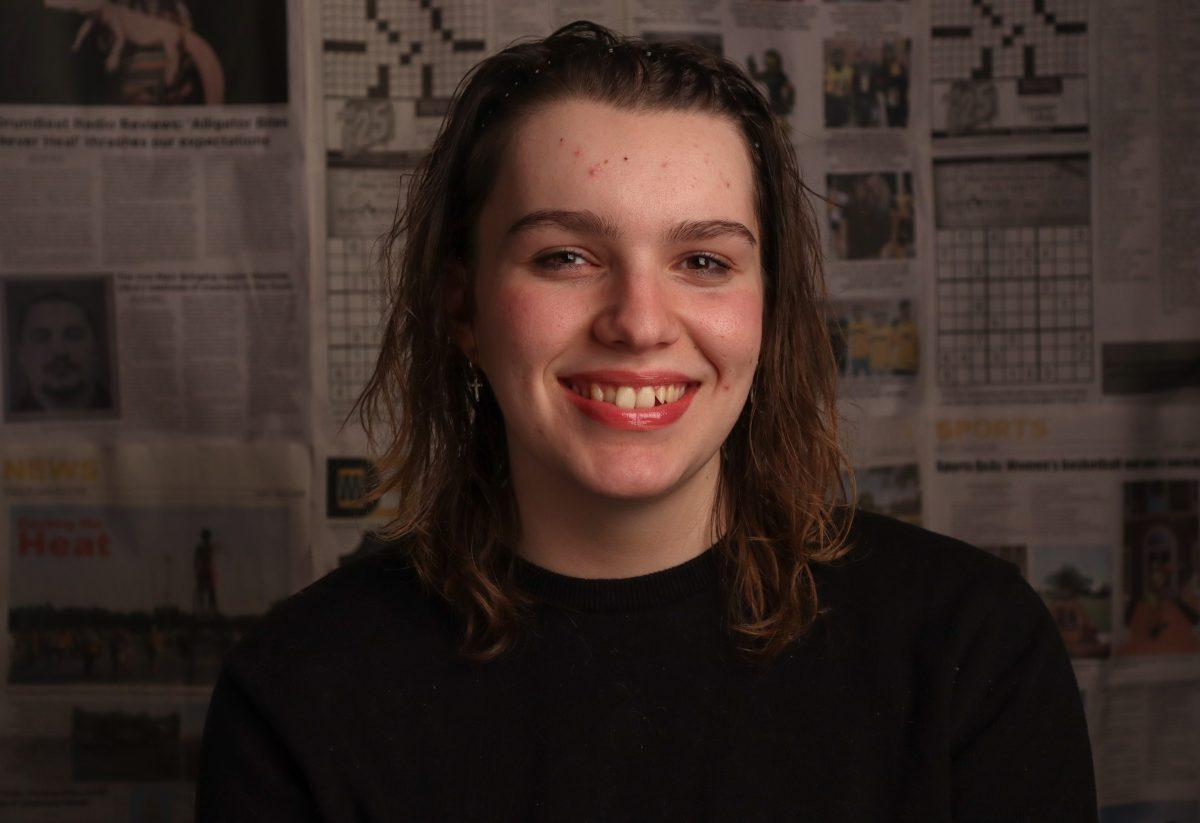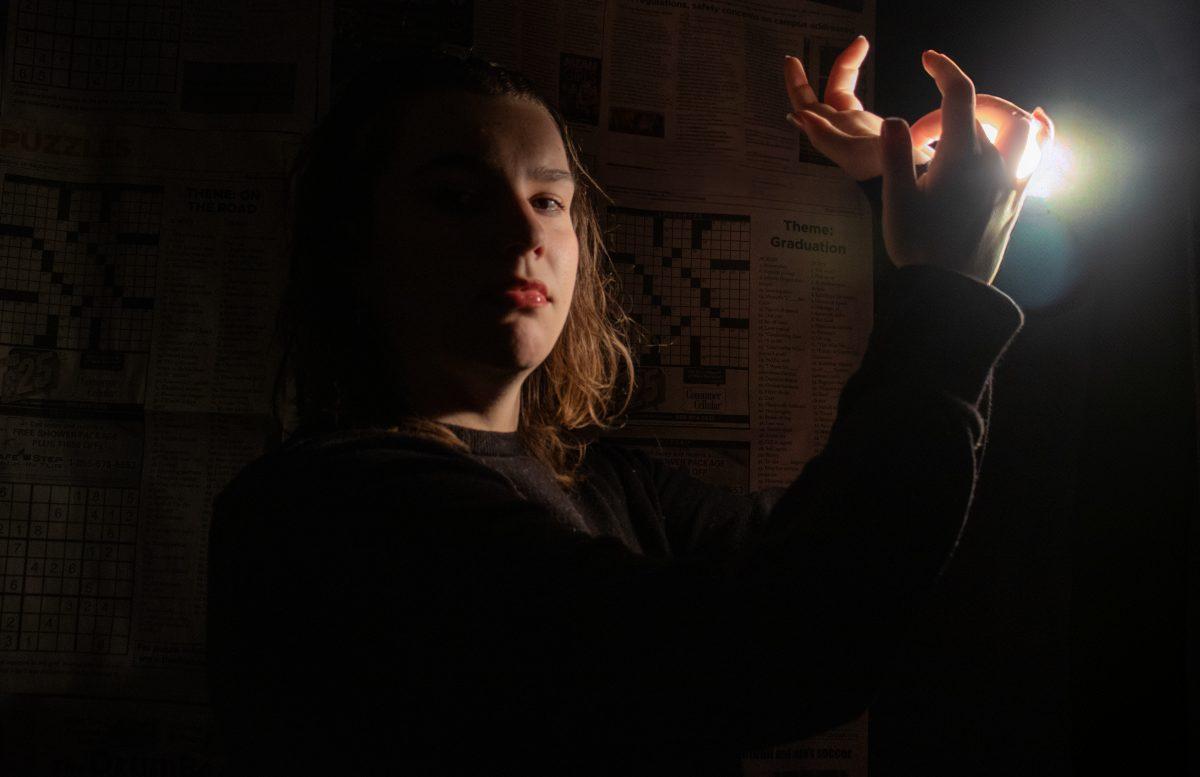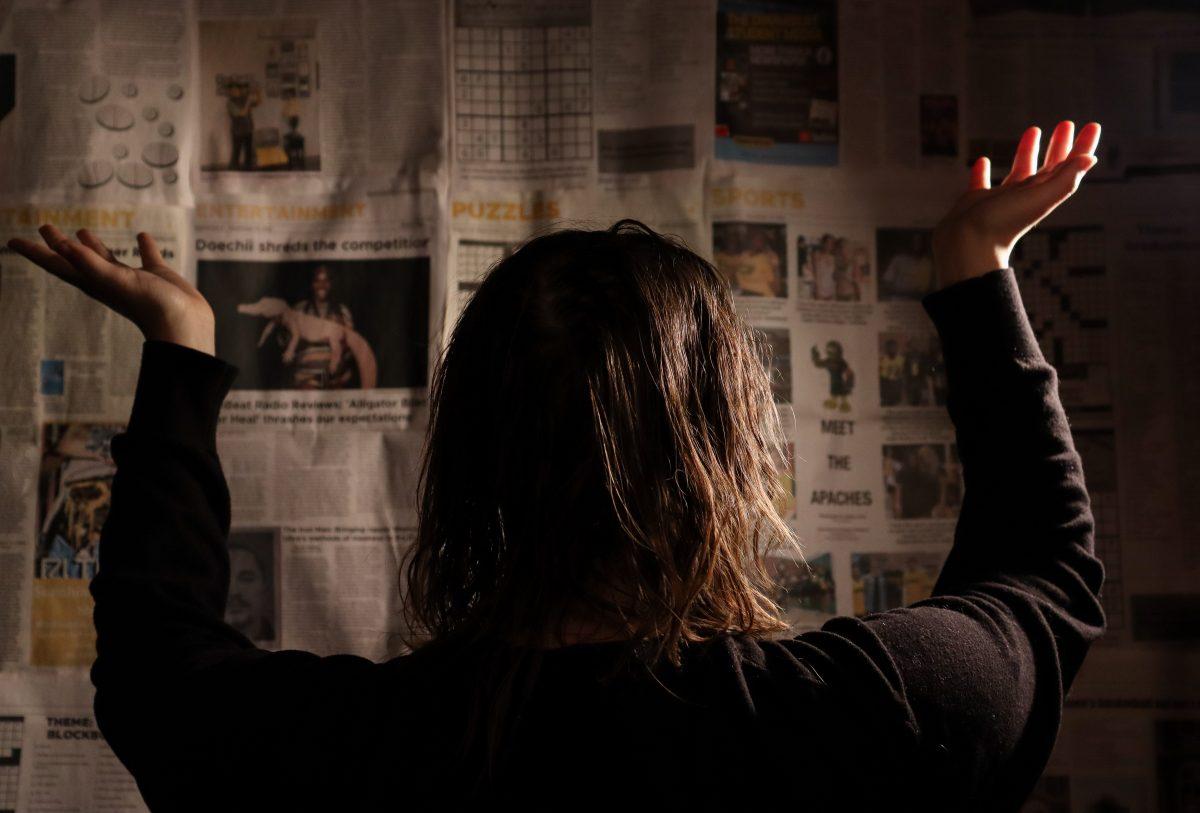
Sarah Sundholm is a freshman sign language interpreting major at TJC. In her first semester she was intimidated going into the program, “I was scared I was gonna get burnt out,” Sundholm said. “But I’ve only just wanted more from this program.”
Q: What inspired you to choose American Sign Language interpreting as your major at TJC?
A: My high school offered ASL classes as well as Spanish, but I decided to take ASL cause I kind of grew up taking or learning ASL because of my sister who is special-needs and can’t speak. So upon taking these ASL classes at my high school, it really opened me to the beauty of the language and the culture. I wanted way more, and so my ASL teacher got me hooked up with the TJC’s sign language department and now I’m here.
 Sundholm and the ASL interpreting program use The DrumBeat to assist in their studies. She describes the program as immersive and rich in understanding.
Sundholm and the ASL interpreting program use The DrumBeat to assist in their studies. She describes the program as immersive and rich in understanding.
Q: Can you describe some of the most impactful courses or instructors that you’ve had well-being in the program?
A: I’ve only had two and I will only have the same two for the rest of my life or time here. One of them being my main one, her name is Marsha Moore. She is a great professor. She teaches most of the interpreting part because she is an ASL interpreter she has been for over 30 years. She’s very real and she is a very great instructor. She’s very personal with us talking about her experiences. And just understanding where we are in our journey learning all of this, and so I feel just so at ease with her and her classes, especially like her interpreting classes, like it really opens my mind to like that side of interpreting and my second instructor that I’ve had is Scott Whitney. He is deaf and he teaches the ASL classes and deaf culture, and deaf culture has really opened my eyes to just why I’m doing this because he dives deep into how our world has completely stopped all ways of communication for them and they’re trying to build back what they had that we’ve broken like way back when. And so it just gives me even more of ever want to continue to help give them the access to communication and so both of those instructors together throughout. My first and this semester has just really made me want to grow more and learn more and I’m very happy for that cause I was scared I was gonna get burnt out but I’ve only just wanted more from this program.
Q: Do you feel your studies have prepared you for your career in the field?
A: Yes. Now I thought I knew everything in high school and I was like you know what I got this in the bag. College will be a breeze. I got here and I completely had to relearn everything. I’m so happy I had to relearn everything because, I had a great foundation in high school but when I got here, I opened my eyes even more to what I could gain into my potential and into how my services could really impact a whole minority that doesn’t often get recognized in our country.
Q: How has the learning environment at TJC influenced or changed your understanding of ASL as a whole and Deaf culture?
A: The culture in the ASL department itself is great. There is a building, loving, community that you are a part of and the thing is you’re with the same people for two years. The people you start your first ASL class with on day one they’re gonna be with you till you graduate. You really grow up being with these people, even though you might not know their last name, you still grow up, bond with them every time you see them in the classroom. I really feel like that builds a sense of community in just our little department itself. With the community there’s always community events going on so that culture is also being added into our everyday classes. We have guest speakers coming up. We have workshops that we do. It’s a really strong foundation that TJC has given me. It feels like that the foundation that has given like all of these students such like a great outlook on Deaf culture, and TJC has done a really good job with the department. I know that a lot of people, a lot of staff members are in support, especially the dean of our program. We’ve been getting a lot of support and it’s been great. I am really happy that I joined this program, and I don’t think I ever wanna leave because it’s just such an accepting and loving community to be part of.
Q: What kind of career path do you want to pursue being an ASL interpreter?
A: There’s so many directions I could take with this. I feel like my main way that I wanna go is maybe going just seeing how I can help. I know that I do also want to try to press, which is the virtual relay systems or services like doing medical online video relay services and doing calls, that one is more flexible scheduling, so I might consider doing that but overall I really don’t know. TJC helps students get jobs when they graduate but when you’re doing practicum, your portfolios are sent out to those practical places and there are people looking because as soon as you graduate, you’re qualified. That this program does set up to get your Board for Evaluation of Interpreters Certification Program, which is like a license that you know what you’re doing. When you graduate, you are qualified for most jobs unless they do require BEI certification, so I’m pretty basically open to everywhere I can get work, so I’m not exactly for sure yet. We’ll find out when I get there.
Q: Is there anything else you would like to add at all?
A: If you have a heart to help people and you don’t know where to go, this is a really good spot. You are helping a minority that isn’t talked about, that isn’t known in America. They don’t make up a really big majority of it, but they are here and they do need that communication access so if you like learning languages, this is probably one of the most hands-on- get it, “hands-on,” language that you could learn. It’s a very accepting and loving community, and I recommend everyone to join at the sign language interpreting degree.
 According to the National Census of the Deaf Population, there are approximately 500,000 Deaf Americans who use ASL, with a ratio of about 50 ASL users for every ASL interpreter. Sundholm plans to help fill the shortage of ASL interpreters.
According to the National Census of the Deaf Population, there are approximately 500,000 Deaf Americans who use ASL, with a ratio of about 50 ASL users for every ASL interpreter. Sundholm plans to help fill the shortage of ASL interpreters.
 Before being able to be a part of the Sign Language Interpreting program at TJC, you must meet the Department Chair for advising before registering. For more information visit tjc.edu/signlanguage/.
Before being able to be a part of the Sign Language Interpreting program at TJC, you must meet the Department Chair for advising before registering. For more information visit tjc.edu/signlanguage/.
 Sundholm stands in front of articles published by The DrumBeat. The puzzle page is used for homework as well as translating articles that are put out.
Sundholm stands in front of articles published by The DrumBeat. The puzzle page is used for homework as well as translating articles that are put out.